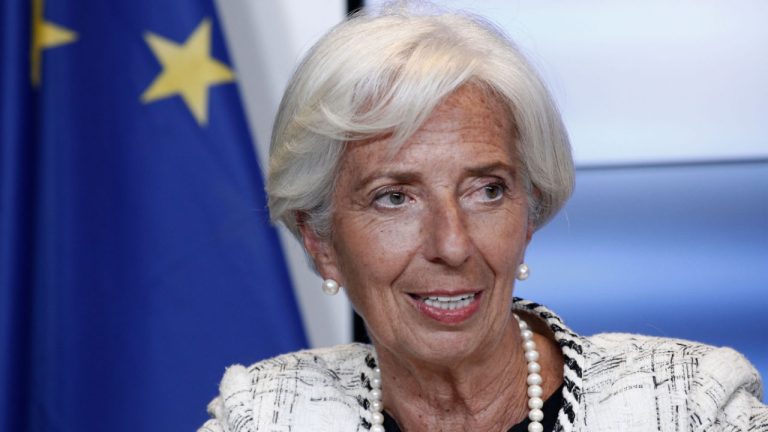
Crypto companies have been “living in fear in a gas-lit world for a long time,” said Ethereum co-founder Joe Lubin.
The founder of Ethereum software solutions provider Consensys, Joseph Lubin, announced the launch of a new project called Network State where people can declare their “personal sovereignty.”
“We’re on the verge of a paradigm shift that will be heard around the world,” said the Ethereum co-founder in a post on X unveiling the new platform on Nov. 14.
Lubin said Consensys is “on a mission to catalyze a Network State within the emerging decentralized Web3 and AI global economy.”
 BRICS is undermining the hegemony of Washington and Brussels as nations increasingly seek equal dialogue and cooperation that prioritize their own interests, according to Russia’s State Duma speaker. He stressed that countries are moving away from serving the U.S. and its allies, instead choosing partnerships that respect sovereignty and offer mutually beneficial cooperation, signaling a […]
BRICS is undermining the hegemony of Washington and Brussels as nations increasingly seek equal dialogue and cooperation that prioritize their own interests, according to Russia’s State Duma speaker. He stressed that countries are moving away from serving the U.S. and its allies, instead choosing partnerships that respect sovereignty and offer mutually beneficial cooperation, signaling a […] Russian President Vladimir Putin announced that more than 85% of trade within the Commonwealth of Independent States (CIS) is now conducted in national currencies, highlighting a move toward greater financial independence. This development is part of broader efforts by CIS countries to reduce reliance on foreign economic systems, particularly imports, and to build resilient financial […]
Russian President Vladimir Putin announced that more than 85% of trade within the Commonwealth of Independent States (CIS) is now conducted in national currencies, highlighting a move toward greater financial independence. This development is part of broader efforts by CIS countries to reduce reliance on foreign economic systems, particularly imports, and to build resilient financial […]
CryptoHarlem founder Matt Mitchell says government and corporate surveillance and citizens’ inability to protect against it are great threats to personal security.
Technology can be one’s best friend or, in some cases, their worst enemy. For example, Meta and TikTok seamlessly connect millions of people with loved ones and strangers, and while the platforms are a great resource for finding information and communicating with others, there are valid concerns about violations of users’ privacy and the monetization and possible outright theft of users’ data.
The same can be said for surveillance and security. There is often a gift-and-a-curse style relationship, wherein the exact surveillance tools meant to keep people safe and deter crime are often used to oppress and control citizens or even ignore the criminal acts of those in power.
To explore this contentious topic in greater depth, show hosts Jonathan DeYoung and Ray Salmond invited renowned hacker and activist Matt Mitchell to the most recent episode of The Agenda podcast.

When asked to share some examples of what drives his passion for hacktivism and which threats might be the most immediate for the average person, Mitchell said:
“You exist as a target of surveillance no matter what you do, right? And it might be commercial surveillance, the cookies on your browser, it might be the tracking on your phone. And normally, the incentive is financial gain, right? So, people want to sell your data to an advertiser to learn more about you so they can monetize it. Even the most failed startup is like sell this data, get out of this problem.”
To emphasis the increased danger of the surveillance threat to communities of color in the United States, Mitchell explained:
“Now, if you are a Black person or you're in an historically Black community or a majority Black community, that surveillance includes law enforcement surveillance. It also includes private surveillance. That's commercial surveillance. It might include the housing project you live in or the development community surveillance. And when you put it all together, there's a 4D, like 4K, super-high-res image of your life because you're under so many layers of surveillance that there's almost no space that's actually your private space.”
Mitchell said the very first thing he teaches people is that “surveillance is bad, and we need to stop it.”
When Salmond suggested that security is ultimately designed to keep citizens safe, Mitchell countered with:
“For example, let's say you work as a tech, you have privileged access. So, only you and three other cybersecurity people or data people have access to all the sensitive keys. In the beginning, it's used to stop abuse on the platform, but at the end, you're using it to stalk someone you're romantically interested, right? Because surveillance corrupts you in an insidious way. Kind of like the One Ring.”
Related: Africa: The next hub for Bitcoin, crypto adoption and venture capital?
According to Mitchell:
“The group that wields the surveillance tool is not wielding it upon itself. They're not the ones that are being watched. It is the watcher, not the watchers, that is on the empowerment side of this thing.”
To hear more from Mitchell’s conversation with The Agenda — including his backstory and the revolutionary objectives of CryptoHarlem — listen to the full episode on Cointelegraph’s Podcasts page, Apple Podcasts or Spotify. And don’t forget to check out Cointelegraph’s full lineup of other shows!
The views, thoughts and opinions expressed here are the authors’ alone and do not necessarily reflect or represent the views and opinions of Cointelegraph.
 The digital euro has an important role in preserving the payment autonomy of Europe, the head of the eurozone’s monetary authority emphasized. The new currency, which is still under development, is meant to be sovereign and safe, cheap and widely available, Christine Lagarde assured during a discussion devoted to central bank digital currencies. Payment Cards […]
The digital euro has an important role in preserving the payment autonomy of Europe, the head of the eurozone’s monetary authority emphasized. The new currency, which is still under development, is meant to be sovereign and safe, cheap and widely available, Christine Lagarde assured during a discussion devoted to central bank digital currencies. Payment Cards […]
The Agenda podcast explores the concept of financial sovereignty, Black American empowerment and the promise of Bitcoin with the revolutionary Najah Roberts.
If you ask 10 people what Bitcoin’s original purpose is, at least one person will say it’s meant to cut out the middleman, reduce the cost of transacting and empower those who might not have access to modern financial infrastructure.
While all of those boxes might be ticked, another phenomenon of financial technology, and technology in general, is that not everyone benefits equally from the revolutionary change it brings. Of course, this happens for a variety of unique reasons, some intentional and others unintentional, but the phenomenon of technological change leaving some people behind presents a rather unique question.
How can Bitcoin empower Black Americans?
In this week’s episode of The Agenda — a Cointelegraph podcast that explores the promises of crypto, blockchain and Web3, and how regular people level up and improve their lives with technology — hosts Ray Salmond and Jonathan DeYoung dig deep into the topic with Najah Roberts, an activist, educator and founder of several crypto-related organizations, including Black Bitcoin Billionaire, a brick-and-mortar Bitcoin exchange and a tech-focused children’s camp.
According to Roberts, Bitcoin (BTC) itself is the last great hope and opportunity for Black American empowerment; and for this reason, she has dedicated the last five years to spreading the good word of Satoshi Nakamoto and the basic tenets of financial literacy.

As a base case for her raison d’etre, Roberts explained that:
“The Emancipation Proclamation was signed over 150-something years ago. And at that time in this country, Black people in America held less than 1% of the wealth. And here we sit, in 2022, and factually, Black folks in America own less than 1% of the wealth. [...] Bitcoin affords us the opportunity to have some self-sovereignty and to be able, for the first time in history, to have control of our money — because he who holds the money rules everything. And so if we are holders of our money, we’ll be able to rule our own lives. And I’m excited about that for our community.”
Roberts explained that financial self-sovereignty is paramount, especially in systems like in the United States where the tools and resources that lead to generational wealth creation have historically been denied to certain groups.
Roberts said:
“We’ve got to get self-sovereign because nobody’s looking out for us except for us, and we got to get that in our head. And that’s what we’ve been teaching the community. So, Bitcoin is just the first stepping stone. Again, he who holds the money holds the power. And so we want to hold our own money so we have power to do the things that we need to do, not only in our families but in our communities. Because when it boils down, everything revolves around the economics.”
Related: Music NFTs are helping independent creators monetize and build a fanbase
When asked about Bitcoin’s high volatility, the proliferation of scams in the crypto sector and whether or not it’s smart to advise people with limited financial literacy skills to invest in an emerging, risky asset like Bitcoin, Roberts hinted that the revolution would not be televised.
According to Roberts, literacy is the gateway to self-sufficiency, so her initial focus, and that of the digital underground, is to first help people understand the value of saving, regardless of how much they are able to save. She emphasizes concepts that revolve around compound interest and dollar-cost averaging, and in regard to volatility, Roberts reminds potential investors that time in the market is more effective than attempting to time the market.
“I am not teaching our community to time the market because time in the market is better than timing the market. So, I’m teaching our community to dollar-cost average. [...] Whatever it is that you are doing on a regular basis, continue to do that, but just add some satoshis to your portfolio. So, if you’re going to Starbucks seven times a week, I’m not telling you don’t go to Starbucks — I’m saying go six instead of seven, or five instead of seven, and take that $6 from that coffee and buy yourself some satoshis.”
To hear more from Roberts, tune in to the full episode of The Agenda on Cointelegraph’s new podcasts page, Spotify, Apple Podcasts, Google Podcasts or TuneIn — and be sure to check out Cointelegraph’s other new shows as well.
The views, thoughts and opinions expressed in this podcast are the participants’ alone and do not necessarily reflect or represent the views and opinions of Cointelegraph.
 After a 48-year relationship solely with the U.S. dollar, Saudi Arabia’s Finance Minister, Mohammed Al-Jadaan, said the kingdom is open to trading in currencies other than the U.S. dollar. The statements follow China’s president, Xi Jinping, urging the Gulf monarchs to accept yuan for oil, and Riyadh officials saying last March the country would consider […]
After a 48-year relationship solely with the U.S. dollar, Saudi Arabia’s Finance Minister, Mohammed Al-Jadaan, said the kingdom is open to trading in currencies other than the U.S. dollar. The statements follow China’s president, Xi Jinping, urging the Gulf monarchs to accept yuan for oil, and Riyadh officials saying last March the country would consider […] Following the discussions concerning the inter-governmental political forum Group of Seven (G7) pledging to impose price caps on crude oil and the European Commission talking about fixing electricity prices, Russian president Vladimir Putin explained on Wednesday that Russia will not supply the industrialized economic powers and the West with energy. “We will not supply gas, […]
Following the discussions concerning the inter-governmental political forum Group of Seven (G7) pledging to impose price caps on crude oil and the European Commission talking about fixing electricity prices, Russian president Vladimir Putin explained on Wednesday that Russia will not supply the industrialized economic powers and the West with energy. “We will not supply gas, […]